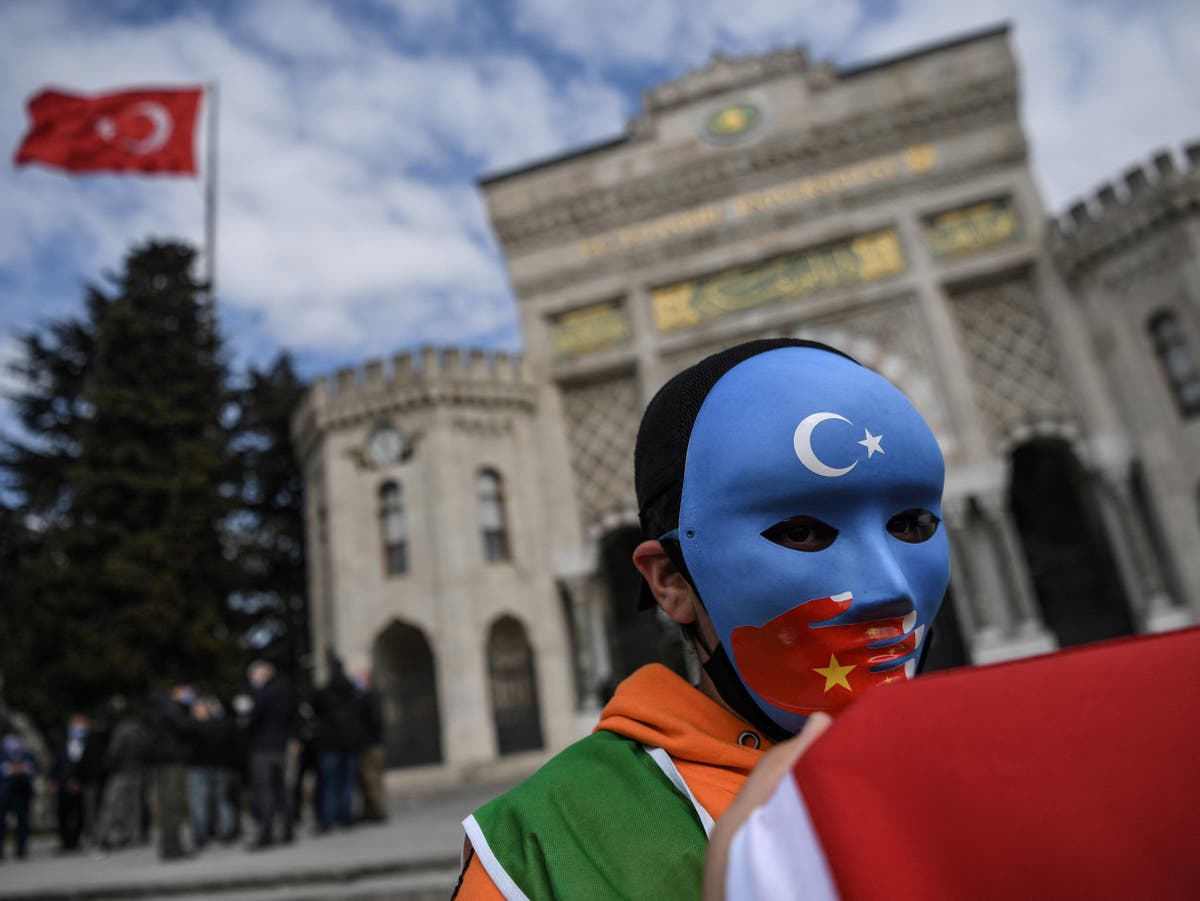
Three Uighur Muslims who fled from China to Turkey have described forced abortions and torture by Chinese authorities in the Xinjiang region.
The trio are due to give evidence to a tribunal in London that will investigate whether Beijing’s actions against ethnic Uighurs amount to genocide.
One woman said she was forced to have an abortion when she was six-and-a-half months pregnant, and a man alleged he was “tortured day and night” by Chinese soldiers in prison.
The independent tribunal, which does not have UK government backing, is expected to draw dozens of witnesses when it starts four days of hearings on Friday.
Organisers hope the evidence given in public will compel international action over alleged abuses in Xinjiang.
One witness, mother-of-four Bumeryem Rozi, 55, said authorities rounded her up along with other pregnant women to abort her fifth child in 2007. She said she complied because she feared that otherwise authorities would confiscate her home and endanger her family.
“The police came, one Uighur and two Chinese. They put me and eight other pregnant women in cars and took us to hospital,” Ms Rozi said.
“They first gave me a pill and said to take it. So I did. I didn’t know what it was. Half an hour later, they put a needle in my belly. And some time after that I lost my child.”
Semsinur Gafur, a former obstetrician-gynaecologist who worked in a hospital in Xinjiang in the 1990s, said she and other female clinicians used to go house-to-house with a mobile ultrasound machine to check whether anyone was pregnant.
“If a household had more births than allowed, they would raze the home. They would flatten the house, destroy it,” Ms Gafur said.
A third exile, Mahmut Tevekkul, said he was imprisoned and tortured in 2010 by Chinese authorities who interrogated him for information about one of his brothers. He said the brother was wanted partly because he published a religious book in Arabic.
Mr Tevekkul described being beaten and punched in the face during questioning.
“They put us on a tiled floor, shackled our hands and feet and tied us to a pipe, like a gas pipe. There were six soldiers guarding us. They interrogated us until the morning,” he said.
An estimated one million people or more have been confined in “re-education” camps in Xinjiang in recent years, according to researchers.
Beijing denies the allegations. Officials say the camps taught the Chinese language, job skills and the law, but have now been closed.
Human-rights lawyer Geoffrey Nice, who led the prosecution of ex-Serbian president Slobodan Milosevic, will chair the tribunal.
Additional reporting by the Associated Press








